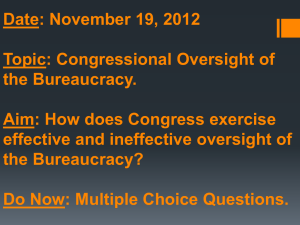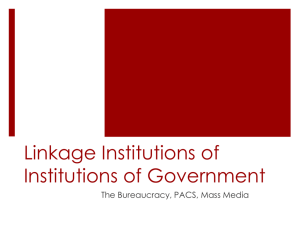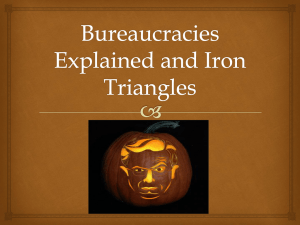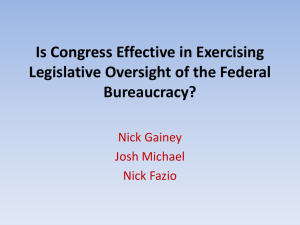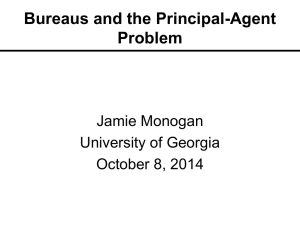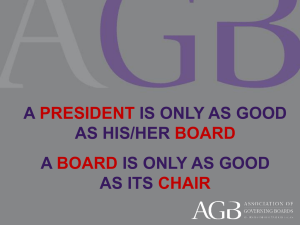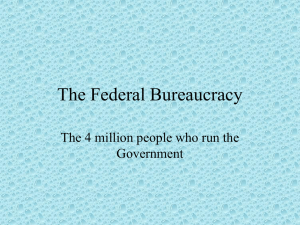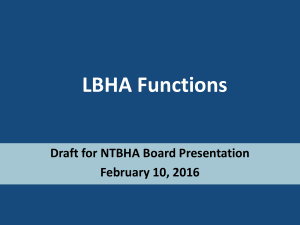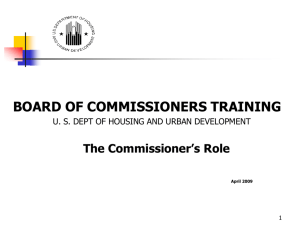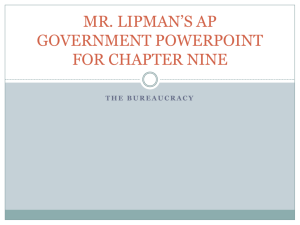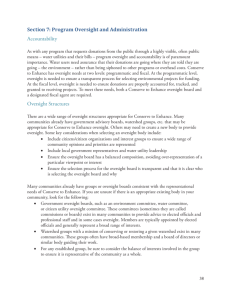Quiz questions for presentation 10 – Bureaucracy
advertisement
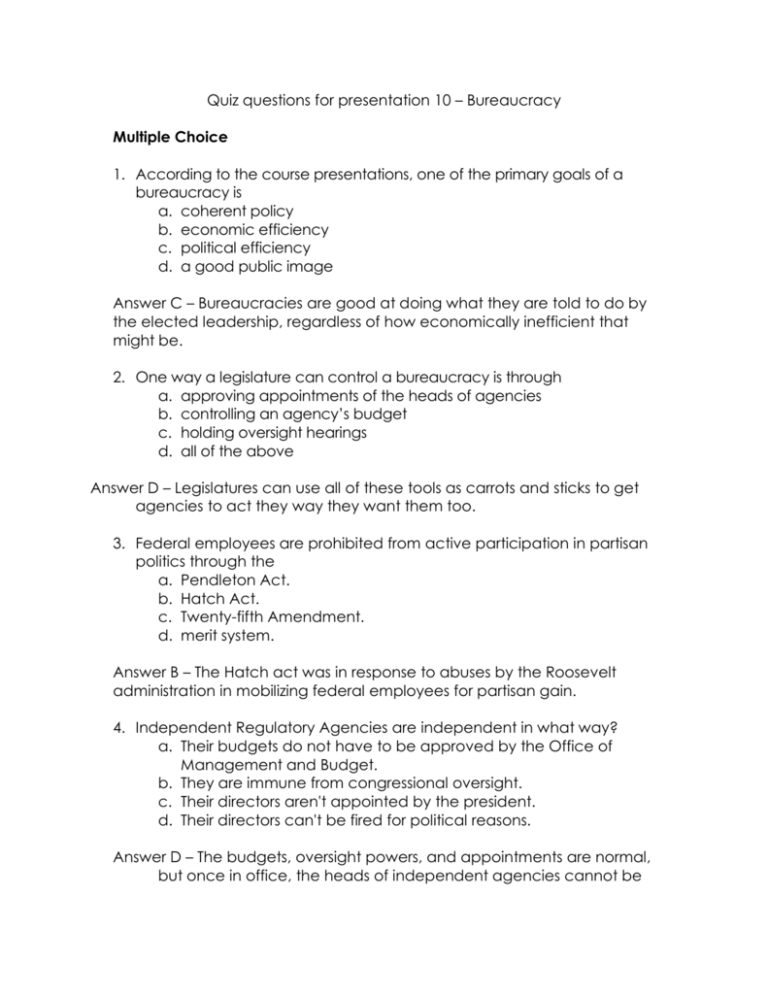
Quiz questions for presentation 10 – Bureaucracy Multiple Choice 1. According to the course presentations, one of the primary goals of a bureaucracy is a. coherent policy b. economic efficiency c. political efficiency d. a good public image Answer C – Bureaucracies are good at doing what they are told to do by the elected leadership, regardless of how economically inefficient that might be. 2. One way a legislature can control a bureaucracy is through a. approving appointments of the heads of agencies b. controlling an agency’s budget c. holding oversight hearings d. all of the above Answer D – Legislatures can use all of these tools as carrots and sticks to get agencies to act they way they want them too. 3. Federal employees are prohibited from active participation in partisan politics through the a. Pendleton Act. b. Hatch Act. c. Twenty-fifth Amendment. d. merit system. Answer B – The Hatch act was in response to abuses by the Roosevelt administration in mobilizing federal employees for partisan gain. 4. Independent Regulatory Agencies are independent in what way? a. Their budgets do not have to be approved by the Office of Management and Budget. b. They are immune from congressional oversight. c. Their directors aren't appointed by the president. d. Their directors can't be fired for political reasons. Answer D – The budgets, oversight powers, and appointments are normal, but once in office, the heads of independent agencies cannot be fired for political cause, they do not serve at the will of the president like other agency heads. 5. Advantages of a bureaucracy include all except a. standardization b. decision-makers are removed from policy problems. c. expertise. d. coordination. Answer B – Decision makers in the bureaucracy are deeply involved in policy problems. Essay Question Who controls the bureaucracy? Discussion Questions How much oversight? The heads of bureaucratic agencies have a great deal of leeway in how they execute their legislative mandate. If there is too much legislative oversight and second-guessing of their actions, very little would get done. If there is too little oversight, gross error, incompetence, and corruption may take root. Critics of the Republican 109th Congress argued that they gave the Bush administration too little oversight, resulting in unchecked corruption and waste. Critics of the Democratic 110th Congress argued that they exercised too much oversight, resulting in a public airing of dirty laundry and agencies not doing their job due to having to constantly look over their shoulder. The Republican leadership of the upcoming 112th Congress has promised to closely scrutinize the Obama administration, particularly as it implements the health care reforms passed by the 111th Congress. How much should the legislature get involved with the bureaucracy, and should it err on the side of too little or too much oversight? Links Executive Report on Hurricane Katrina Response http://hsgac.senate.gov/_files/Katrina/ExecSum.pdf hierarchical list of federal agencies http://www.lib.lsu.edu/gov/tree

